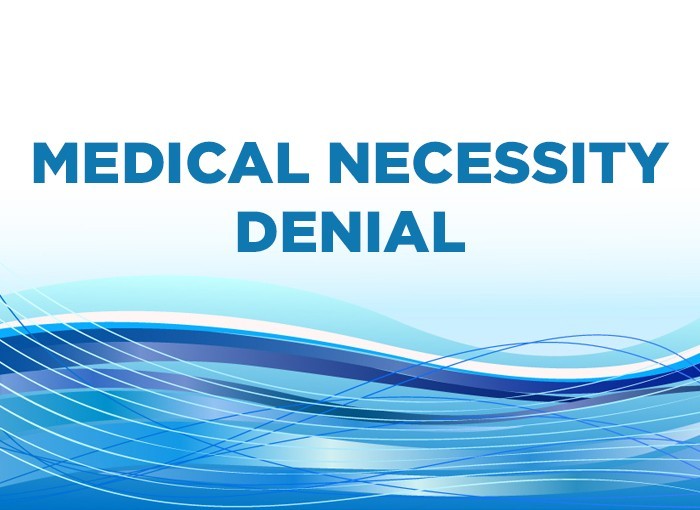What is Medical Necessity Denial?
As per the American Medical Association (AMA), medical necessity is the healthcare service, procedure, or treatment provided to a patient to diagnose a medical problem, prevent an injury, or treat an illness following the clinical standards of care and not solely for the economic benefit. Generally, there are many reasons for claims denials. Some come down to simple problems that are easy to fix, while others rise to the level of disputes. Medicare and private insurers determine medical necessity claims payment. Accurate claim submission can only be possible if the providers support treatment as a medical necessity. For the providers, the claim approval rate impacts the organization’s financial health. Regardless of the reason, practitioners should appeal and retrieve claims denials.
Get specific with the documentation process:
It is important to get specific with documentation and eliminate things like lack of supportive documentation, using copy & paste feature, inaccurate templates, lack of specificity per patient, copying notes into claims, and uniquely identifying information missing. In case of complex notation needed as per the patient medical records, vital signs, and lab reports, providers submit a brief plan instead of following a template. All above mentioned things are the common problems contributing to substandard documentation, thus leading to medical necessity denials. Also, there are specific clinical guidelines by the government and private insurance companies for procedures and services. For Medicare, NCDs (National Coverage Determination) covers nationwide, while Local Coverage Determinations (LCDs) are covered by a Medicare Administrative Contractor (MAC). The constant communication between the revenue cycle office and the clinical staff can prevent incomplete documentation before claim submission.
Ask for a peer review:
When demanding a peer-review on treatment decisions and the coverage limitations to overturn the medical necessity decisions. Providers strive for higher-level specificity when it comes to the credentials of the appeal reviewer. A well-written appeal report will justify the medical necessity of the treatment and elevates the chances of success in settling the denied claims. The appeal letter should include details relevant clinical findings, medical codes, and specific notation of recorded documentation.
Additionally, providers have to chase multiple levels of appeal with their prerequisites.
Level 1- Renegotiation by a Medicare Administrative Contractor (MAC)
Level 2- Re-evaluation by a Qualified Independent Contractor (QIC)
Level 3- Trial before an Administrative Law Judge (ALJ)
Level 4- Reconsideration by the Medical Appeals Council
Level 5- Official Review in United States District Court
To expedite the process, obtain authorization from the patient to pursue an external review process. Do not forget to make an electronic signature instead of a physical one to overturn a medical necessity decision.
Have a coding expert on board:
Medical necessity denials for code not being valid impact the revenue cycle. Having a skilled coding team ensures that coding errors don’t cause hassles in claims denials and appeals. Having a third party double-check the provider’s coding supports the documentation. Which later prevents denials and generates cash flow into the practice. Preventive audit of the random records can be insightful in terms of billing and thoroughness of the documentation, and the appropriate coding.
Obtaining oversight improves billing and increases knowledge about the National Coverage Determination (NCDs), Local Coverage Determination (LCDs), contracts, and payer policies.
Billing Software Updation:
Billing software with recent updates on diagnosis and procedure codes can help the staff eliminate repetitive errors as obsolete information can delay billing and coding. Additionally, a built-in feature like a claim scrubber of your billing software increases the chances of first-time claim submission success with more cash flow into the practice.
Obtain Prior Authorizations:
One of the common problems contributing to medical necessity denials is a byproduct of Insurance Verification. The burden of verifying and validating patient demographic information, prior approvals, obtaining referrals, diagnosis and procedural codes, and patient benefits before service can be a bit too much. Providers should routinely check with the Insurance Verification Company in preventing those pesky denials.
For providers to overturn medical necessity denials may require to execute a range of essential duties in faster claim payments and constant cash flow for a practice.




